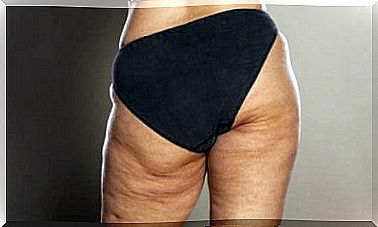The Consumption Of Caffeine In Pregnancy: A Controversial Problem

Caffeine is a substance commonly consumed in our society. It is present in coffee, but also in soft drinks, chocolate or tea, for example. But what should be done with the consumption of caffeine during pregnancy? Can it be? Can not be done?
What is caffeine?
We often hear about caffeine, but do we really know what it is? Chemically, it is an alkaloid that belongs to the methylxanthine group. In our body, it acts in the central nervous system as a psychostimulant.
It is a competitive antagonist of A1 and A2a adenosine receptors. These receptors are responsible for inhibiting the release of many neurotransmitters, so the effect of caffeine is their release. Caffeine enhances, among other things, the action of dopamine.
Caffeine is also considered a drug due to its stimulating properties. Excessive consumption causes a certain type of tolerance and can lead to withdrawal symptoms when suppressed immediately.
This alkaloid is also used for its pharmacological properties. In particular, it is used as an adjunct in the analgesic treatment of pain. It is also part of the composition of many flu and migraine medications.

Properties of caffeine
As we have said, caffeine is a psychostimulating and psychoactive substance for our central nervous system. This means that it activates our brain, wakes it up and keeps it alert. In addition, it has other effects on our body, including:
- It is an antioxidant and attacks free radicals.
- Raise your blood pressure.
- Increase your heart rate.
- It has diuretic properties.
- Promotes blood circulation.
- It can cause dehydration.
- It can cause headaches, but it also helps eliminate it.
- Improves respiratory function by increasing the contraction of the diaphragm.
- It produces vasodilation in the muscles.
Consumption of caffeine in pregnancy
Occasionally, caffeine has been considered a risk factor for fertility, just like tobacco or other drugs. At low doses there appears to be no risk, however it is best not to abuse if you are trying to get pregnant.
Moderate consumption of caffeine during pregnancy has no harmful effects. A consumption of less than 200 mg per day is considered safe, equal to just over a cup of coffee prepared with the moka pot and about two cups taken at the bar. However, high levels of caffeine during pregnancy can cause a miscarriage and slow the growth of the fetus.
Why these effects? Caffeine crosses the placenta, so that the amount present in the mother’s blood passes freely to the amniotic fluid and to the fetus. There is no way in the placenta to metabolize this arriving caffeine, and neither does the fetus have the necessary enzymes to do so.

Due to its properties, caffeine can cause uterine and fetal vasoconstriction, decreasing the amount of blood that arrives and, consequently, the necessary oxygen and nutrients. Therefore, a high consumption of caffeine can impair the growth of the fetus.
Other more serious complications that caffeine can cause in pregnancy are, as we have said, the risk of miscarriage, especially in the first trimester, or the onset of pre-eclamsia or hypertension.
Blood pressure and heart rate are factors that need to be monitored during pregnancy, so you should avoid the use of substances that alter them. In this way, you will avoid unwanted complications, both for you and for the fetus.
On the other hand, during breastfeeding, caffeine also passes into breast milk. Excessive consumption of caffeine by the nursing mother can sometimes cause irritability and sleep disturbances in infants. However, moderate consumption does not present any risk.
Consuming caffeine in pregnancy is a controversial issue. There is still a lot to investigate in this area. Excessive consumption of caffeine has harmful effects, especially in pregnancy, for both the mother and the fetus.









